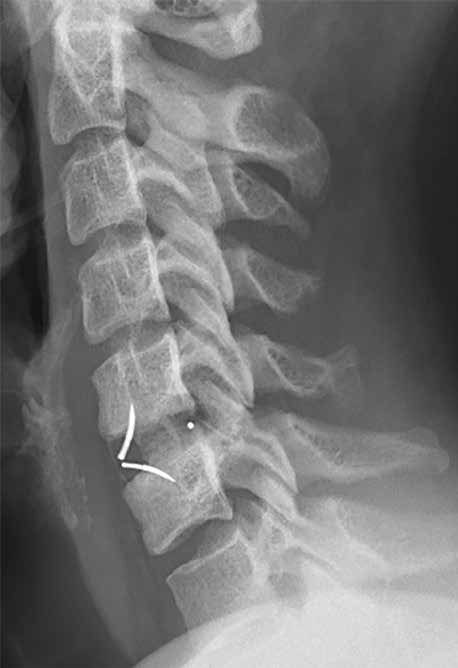Abstrakt
Úvod: Dysfágia je častým nálezom po prednej krčnej diskektómii. Incidencia a závažnosť porúch prehĺtania po tomto operačnom výkone sú variabilné a závisia od mnohých faktorov.
Metódy: Do prospektívnej monocentrickej štúdie bolo zaradených 73 pacientov po 1- alebo 2- segmentovej prednej krčnej diskektómii a fúzii / ACDF/. Stupeň závažnosti porúch prehĺtania bol hodnotený pomocou Bazaz-You dysfagického skóre pred operačným výkonom, 6 týždňov, 3, 6 a 12 mesiacov po operačnom výkone. Bol verifikovaný vplyv faktorov ako pohlavie, vek, počet operovaných segmentov, fajčenie, refluxná choroba pažeráka, arteriálna hypertenzia, trvanie operačného výkonu a preexistujúca dysfágia na výskyt porúch prehĺtania. Bola sledovaná korelácia medzi trvaním operačného výkonu a závažnosťou pooperačnej dysfágie, podobne medzi vekom pacientov a závažnosťou dysfágie v predoperačnom a pooperačnom období.
Výsledky: Dysfágia bola prítomná v období 12 mesiacov pooperačne u 22 % pacientov. Žiadny pacient neudával ťažký stupeň dysfágie. Nebol preukázaný signifikantný vzťah medzi pohlavím, vekom, refluxnou chorobou pažeráka, arteriálnou hypertenziou a incidenciou predoperačnej a pooperačnej dysfágie. Rovnako nebol zistený signifikantný vzťah medzi počtom operovaných segmentov, preexistujúcou dysfágiou a incidenciou pooperačnej dysfágie. U fajčiarov bola signifikantne nižšia incidencia dysfágie predoperačne a v období 12 mesiacov po ACDF (p<0,05). Pri operačných výkonoch s trvaním 90 minút a viac bol výskyt porúch prehĺtania signifikantne vyšší v období 3 mesiace po ACDF (p<0,05). Nebola potvrdená významná korelácia medzi trvaním operačného výkonu, vekom a závažnosťou pooperačnej dysfágie.
Záver: Faktory ako preexistujúca dysfágia, pohlavie, vek, počet operovaných segmentov, refluxná choroba pažeráka a arteriálna hypertenzia nemajú vplyv na incidenciu dysfágie po ACDF. Trvanie operačného výkonu je rizikovým faktorom v období 3 mesiacov po ACDF.

